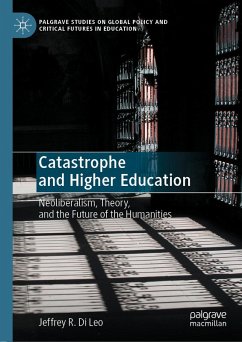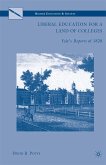This book asks what it means to live in a higher educational world continuously tempered by catastrophe. Many of the resources for response and resistance to catastrophe have long been identified by thinkersranging from Ralph Waldo Emerson and William James to H. G. Wells and Emanuel Haldeman-Julius. Di Leo posits that hope and resistance are possible if we are willing to resist a form of pessimism that already appears to be drawing us into its arms. Catastrophe and Higher Education argues that the future of the humanities is tied to the fate of theory as a form of resistance to neoliberalism in higher education. It also offers that the fate of the academy may very well be in the hands of humanities scholars who are tasked with either rejecting theory and philosophy in times of catastrophe-or embracing it.
Dieser Download kann aus rechtlichen Gründen nur mit Rechnungsadresse in A, B, BG, CY, CZ, D, DK, EW, E, FIN, F, GR, HR, H, IRL, I, LT, L, LR, M, NL, PL, P, R, S, SLO, SK ausgeliefert werden.









